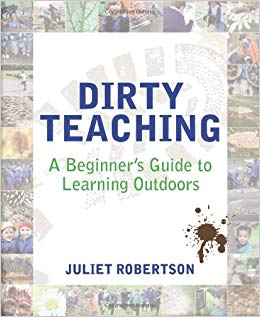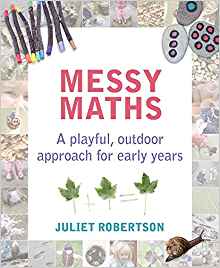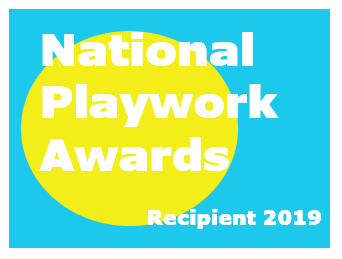Support for Schools to Enhance Opportunities for Outdoor Learning and Play
Here are some websites which can provide your school with inspiration for initiating or improving opportunities for outdoor learning and play:

Creative STAR Learning
Creative STAR LearningLtd was established in 2007 to provide support, training, advice and resources on outdoor learning and play.
It was founded by Juliet Robertson, one of Scotland’s leading education consultants who is passionate about enabling schools, play organisations and early years settings to provide quality outdoor learning and play opportunities for children and young people.
They offer a number of courses which help school and early years staff to feel inspired and motivated to take children outside more often, gain practical ideas and develop their understanding of learning and teaching processes outdoors. They also offer bespoke School Support Visits.
You can follow Juliet Robertson’s blog here: https://creativestarlearning.co.uk/blog/
Juliet has also written two books which are useful school resources:

Dirty Teaching: A Beginner’s Guide to Learning Outdoors, by Juliet Robertson
In this book, Robertson offers outdoor learning support for primary schools:
“One of the keys to a happy and creative classroom is getting out of it and this book will give you the confidence to do just that. There is no need for expensive tools or complicated technologies: all you need is your coat and a passion for learning.”

Messy Maths: A Playful, Outdoor Approach for Early Years, by Juliet Robertson
“Messy Maths reimagines the outdoor space through a mathematical lens providing a treasure trove of suggestions that will empower you to blend outdoor learning into your teaching practice.
It is an easy-to-use reference book replete with games and ideas designed to help children become confident and skilled in thinking about, using and exploring abstract mathematical concepts as they play outside.
Topics include exploring numbers; number functions and fractions; money; measurement; time; pattern; shape and symmetry; position, direction and movement; data handling; routines; and the mathematical garden.”

Outdoor Play and Learning (OPAL)
OPAL works with schools to help them benefit from play and utilise their space more effectively.
They are committed to ensuring that Article 31 (the right to play) of the United Nations Convention on the Rights of the Child is recognised and implemented in all UK schools and by all organisations which have an impact on the quality of childhood.

In 2019 OPAL collected two first place awards at the National Playwork Awards.
Opal’s Primary Programme – based on many years of research and development – is a mentor supported school improvement programme. It addresses all of the areas schools must plan for if they want to sustainably improve the quality of play.
During the programme OPAL work with schools over an 18 month period to support a cultural and practical transformation of the way that play is thought about, planned for, resourced and staffed. Most OPAL schools report that they could never go back to the way they had been once they have completed the programme. OPAL says:
“We support primary schools to dramatically improve the quality of play times, with a consequent beneficial impact on lunchtime behaviour (some of our schools have seen their serious behavioural problems completely disappear!), engagement, learning, personal development and physical activity/literacy”
To get an idea of how play-time could look, here is a short video from St Michael’s Catholic Primary School in Surrey, filmed after 18 months of working with OPAL:
Let Grow

The Let Grow website from the US has a couple of great ideas for schools to promote play, and in turn, build independence and resilience among students.
The Let Grow Play Club
This involves schools keeping their playgrounds open until dinner-time for self-directed free play. Students build social skills and creativity by making their own fun. The mixed-age play and long stretch of tech-free time provide opportunities for social and emotional growth that go far beyond the possibilities at playtime or lunch break.
Find out more in this short film:
You can find an implementation guide for setting up a Play Club at your school at https://letgrow.org/program/play-club/.
The Let Grow Project
Let Grow say that this second idea is simple:
“Teachers tell the students to go home and ask their parents if they can do one thing they feel ready to do that they haven’t done before e.g. walk the dog, make dinner, get themselves to school, either alone or with other children. The result is often a great leap in confidence and decline in anxiety (reportedly in both generations!).”
You can find out more in this short film:
Press Play

Press Play is an international community of educators committed to embedding play beyond Early Years. Their community offers a safe space to develop content and share ideas, members get to co-create monthly interviews with world-class play experts and embed the ideas and practice from 10 leading play thinkers.
“We’re committed to developing deep, effective play-driven practice throughout primary and beyond. We connect you with leading practitioners and international play experts across the globe and guide you on implementing these concepts in your school. This ultimately results in cultivating highly engaged, creative learners both now and in the future.”
PARS Playwork

Based on the practice of adventure playground pioneers, the PARS model of playwork was developed from research by Dr Shelly Newstead and is now used by professionals (and increasingly parents) all over the world. PARS empowers adults to enable children to make their own choices.
“Research has found that PARS practitioners are less likely to intervene in children’s self-directed activities and are more open to children’s risk-taking behaviours, which increases children’s social and emotional development and resilience.”
(Chan et al, 2020)
PARS offers training and consultancy for schools around kindergarten curriculum and lunchtime provision in various countries around the world.

